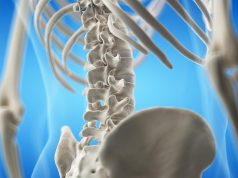15-year survival similar for patients using mechanical prosthetic, bioprosthetic replacement valves
WEDNESDAY, April 15, 2015 (HealthDay News) — Fifteen-year survival is comparable for bioprosthetic and mechanical prosthetic valve replacement, according to a study published in the April 14 issue of the Journal of the American Medical Association.
Joanna Chikwe, M.D., from the Icahn School of Medicine at Mount Sinai in New York City, and colleagues quantified survival and major morbidity after mitral valve replacement in a retrospective cohort analysis of 3,433 patients (aged 50 to 69 years). Participants underwent primary, isolated valve replacement from 1997 to 2007 and were followed through Nov. 30, 2013 (median, 8.2 years).
The researchers observed no survival difference between use of mechanical prosthetic and bioprosthetic mitral valves in patients matched by propensity score (15-year survival, 57.5 versus 59.9 percent; hazard ratio, 0.95; 95 percent confidence interval, 0.79 to 1.15) or in subgroup analysis of age by decade. Patients who received mechanical prosthetic mitral valves had a significantly higher incidence of stroke (65 versus 41 percent; hazard ratio, 1.62) and bleeding events (72 versus 49 percent; hazard ratio, 1.50), compared with those who received bioprosthetic mitral valves. Reoperation incidence was lower in the mechanical prosthesis versus the bioprosthesis group (28 versus 47 percent; hazard ratio, 0.59).
“Even though these findings suggest bioprosthetic mitral valve replacement may be a reasonable alternative to mechanical prosthetic valve replacement in patients aged 50 to 69 years, the 15-year follow-up was insufficient to fully assess lifetime risks, particularly of reoperation,” the authors write.
One author disclosed financial ties to the medical device industry relating to his involvement in the development of two mitral valve repair rings and one tricuspid valve repair ring.
Copyright © 2015 HealthDay. All rights reserved.








